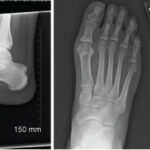Gout is the most common type of inflammatory arthritis in adults, and it typically occurs in men over the age of 50. When gout presents in younger patients or in women, this should warrant consideration of secondary causes. We describe an unusual genetic cause of tophaceous gout in a young, premenopausal woman. Case Report In…









